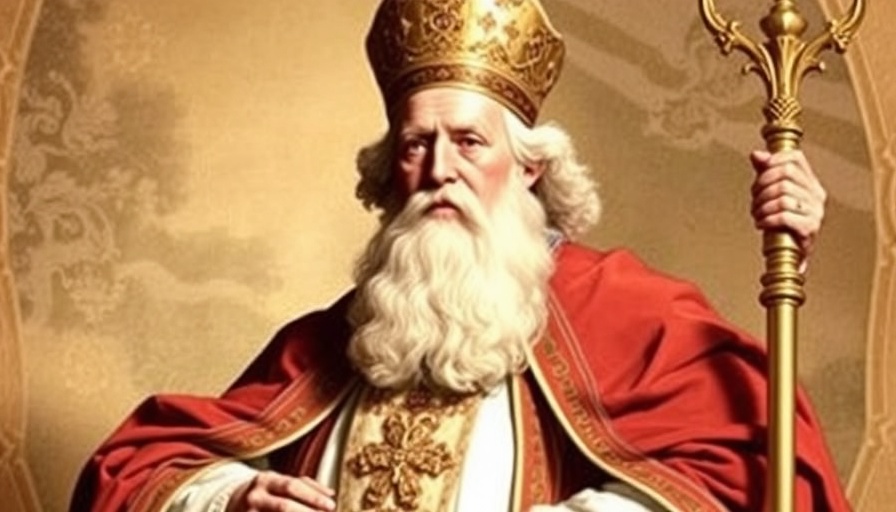
Who is Pope Leo XIV? An Overview
With the recent election of Cardinal Robert Francis Prevost to Pope Leo XIV, the Catholic Church enters a new chapter under the leadership of its 267th pontiff. This historical event unfolded within the walls of the Sistine Chapel, where a global audience held its breath, eager for the white smoke that signaled a new papal election.
Born in Chicago on September 14, 1955, Leo XIV marks his place in history as the second pope from the Americas, succeeding Pope Francis, who passed away at the age of 88. Cardinal Prevost's election signals not just continuity but a commitment to the legacy of social justice, reminiscent of previous popes named Leo. His choice to assume this name carries notable weight as he steps into a role focusing on global outreach and compassion.
Significance of the Name Leo
Electing the name Pope Leo XIV isn't simply a matter of tradition; it serves as a powerful statement. The previous Pope Leo was known for his dedication to social issues and reform. This strategic decision highlights continuity with Pope Francis’s vision, especially in areas like social justice and community outreach. For many, this name choice may embody hope for addressing critical global crises such as climate change and poverty—themes that have featured heavily in recent papal discourses.
Pope Leo's Background and Education
Pope Leo XIV's academic journey began at Villanova University, where he graduated with a Bachelor of Science in Mathematics in 1977. His thirst for knowledge propelled him to pursue further studies in theology at the Catholic Theological Union of Chicago, a reflection of his firm foundation in both intellectual inquiry and spiritual commitment. As a 69-year-old balancing experience and vigor, his educational background equips him to navigate the complexities of contemporary religious and social issues.
Pope Leo XIV and the Future of the Catholic Church
The cardinal's inauguration raises considerable interest regarding his approach to the pressing issues facing the Catholic Church today. What lies ahead in this new papacy? Pope Leo XIV's first public speech underscored his commitment to listening and engaging with the faithful. His ability to harness the power of social media offers insight into his progressive stances, making the Vatican more accessible to younger generations and a global audience.
Cultural and Political Implications
This election takes place against a backdrop of increasing scrutiny on church governance, especially following the challenges confronted by the previous papacy. Questions surrounding accountability, inclusivity, and reform will likely shape his tenure. As he embarks on his journey, balancing traditional doctrines with modern viewpoints may prove to be one of his most formidable tasks. Understanding Pope Leo XIV's perspective will be essential for Catholics and observers alike.
The Pope's Vision: What Can We Expect?
Pope Leo XIV's social media presence already hints at his vision for the church's future. Engaging the youth and addressing issues such as mental health, poverty, and environmental challenges will potentially guide his papacy. By fostering dialogs that resonate with both younger audiences and long-standing church members, he can embody a bridge between tradition and modernity.
Call to Action for the Community
As Pope Leo XIV assumes his role, becoming engaged in conversations surrounding the future of the Catholic Church is essential for community members. Attend local gatherings, connect with church officials, and explore ways to contribute to initiatives focused on social justice and environmental stewardship. The actions of both clergy and laity in the coming years will shape the significance of this papacy. Together, let us demonstrate our faith through action in our own communities.
 Add Element
Add Element  Add Row
Add Row 



 Add Row
Add Row  Add
Add 


Write A Comment